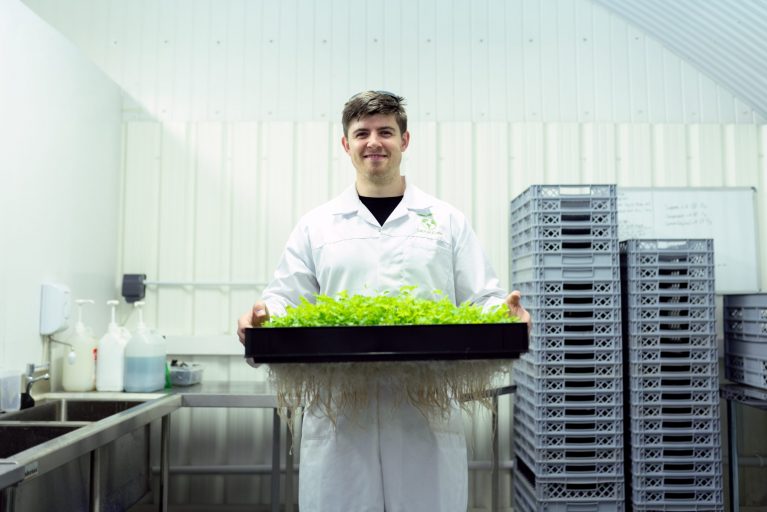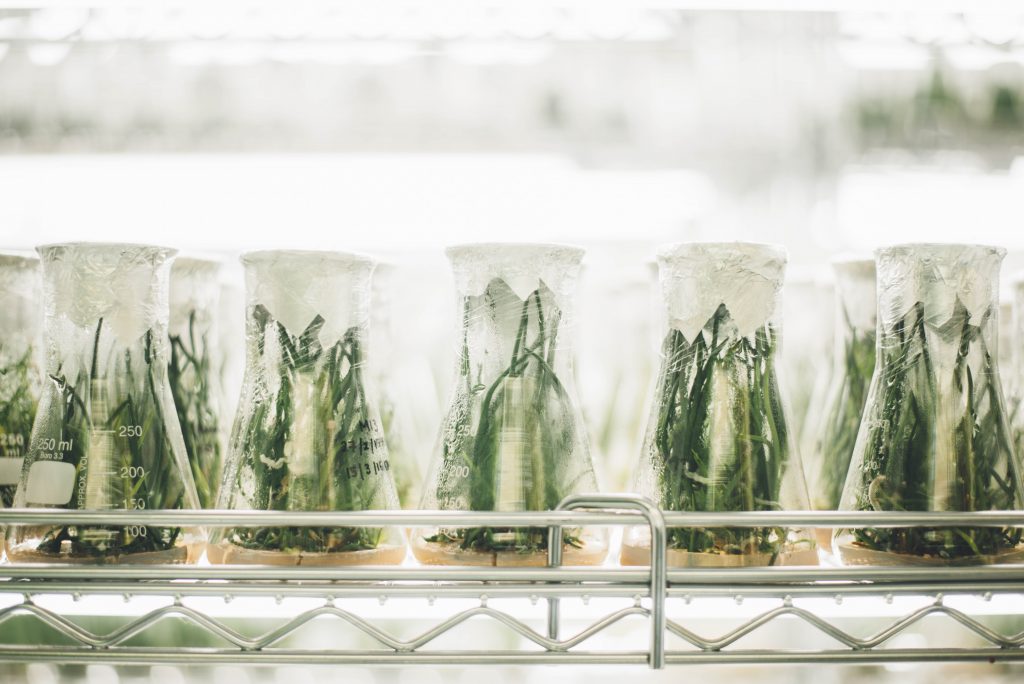Biology is an exciting and ever-evolving field that attracts students passionate about understanding life, from microscopic organisms to complex ecosystems. Many students choose to major in biology to expand their knowledge of the natural world and prepare for careers in healthcare, research, or environmental conservation. If you’re considering a degree in biology, here’s why it could be the perfect choice for you.
A Diverse Range of Specializations
One of the most compelling reasons to study biology is its vast array of specializations. Beyond a general biology degree, students can delve into subfields such as Molecular Biology, Evolutionary Biology, Human Biology, and Plant Biology. Many of these specializations are available at the master’s level, allowing you to tailor your education to your specific interests and career aspirations. Whether you’re intrigued by genetics, fascinated by marine ecosystems, or eager to explore biotechnology, biology offers numerous pathways to explore. When coursework becomes demanding, seeking biology assignment help can ensure you stay on track and deepen your understanding of complex topics.
Additionally, fields like Bioinformatics, Neuroscience, and Biomedical Engineering integrate biology with technology, opening doors to innovative career opportunities. This interdisciplinary nature ensures that biology remains relevant across multiple industries.
Opportunities in Bio-Entrepreneurship
Biology is not just about research and academia—it also opens doors to entrepreneurship. Many graduates leverage their knowledge to create innovative solutions that benefit both society and the economy. Bio-entrepreneurs work on groundbreaking projects in healthcare, agriculture, and environmental science. However, launching a business in this field requires more than just scientific expertise—it also demands an understanding of business fundamentals, including management, marketing, and finance.
Potential bio-entrepreneurship ventures include:
- Establishing a laboratory specializing in genetic engineering.
- Opening a pharmaceutical or medical supply company.
- Creating a consultancy focused on environmental and biological issues.
- Developing sustainable and biodegradable materials to reduce plastic waste.
- Advancing personalized medicine and biopharmaceuticals.
With the right combination of scientific knowledge and business acumen, biology graduates can become pioneers in cutting-edge industries.

A Career Beyond the Office Walls
If the thought of a traditional 9-to-5 office job doesn’t excite you, biology offers a dynamic alternative. Biologists often work in a variety of settings, from research laboratories to outdoor fieldwork. One day you might be analyzing data on a computer, and the next, you could be collecting soil samples in a rainforest or testing water quality in a local river.
This mix of indoor and outdoor work keeps the profession engaging and diverse. Many biologists also travel for research, conservation projects, or academic collaborations, adding an adventurous element to their careers. If you love both scientific inquiry and hands-on exploration, a biology degree could be your gateway to a fulfilling and flexible career.
Some exciting careers that involve fieldwork include:
- Marine Biologist studying ocean ecosystems.
- Wildlife Conservationist working to protect endangered species.
- Ecologist researching climate change impacts.
- Environmental Consultant advising industries on sustainable practices.
Skill Development for the Future
A degree in biology equips you with a powerful skill set that extends beyond scientific knowledge. Throughout your studies, you will develop:
- Critical Thinking & Problem-Solving Skills: Laboratory and field experiments require analytical thinking and innovative problem-solving approaches.
- Research Proficiency: Conducting research, whether through experiments or literature reviews, strengthens your ability to analyze information and make data-driven decisions.
- Communication Skills: Writing scientific papers and presenting findings enhances your ability to convey complex information clearly and persuasively.
- Collaboration & Teamwork: Many biology projects require working in multidisciplinary teams, helping you develop interpersonal and leadership skills.
- Data Analysis & Technology Use: Learning statistical software, laboratory techniques, and bioinformatics tools prepares you for careers in biotech and medical research.
To maximize your learning, take advantage of available resources, such as collaborating with experienced researchers, seeking mentorship, and utilizing academic support services. Developing strong research and writing skills early will be invaluable in both academic and professional settings.

Addressing Global Challenges
Now more than ever, the world needs biologists. As environmental, medical, and technological challenges grow, experts in biology play a crucial role in finding solutions. Some of the most pressing global issues that require biological expertise include:
- Reducing carbon emissions while minimizing environmental impact.
- Improving agricultural sustainability to ensure global food security.
- Developing eco-friendly and reusable materials.
- Advancing antibiotic research to combat drug-resistant bacteria.
- Innovating in genetic therapy and regenerative medicine.
Biology is a field that empowers you to make a tangible difference. If you are passionate about solving real-world problems, majoring in biology is a step toward meaningful impact.
Exciting Internship Opportunities
A major advantage of studying biology is the opportunity to gain hands-on experience through internships. Many programs offer students the chance to work on groundbreaking projects and engage in life-changing experiences. Some notable internships include:
- Animal Welfare Volunteer Programs (GoEco) – Hands-on experience in animal conservation.
- Conservation and Ecology Internships in Swaziland Savannah (Kaya Responsible Travel) – Fieldwork in one of the world’s most unique ecosystems.
- DAAD RISE Professional Program (German Academic Exchange Service) – Research internships for aspiring biologists.
- NIH Summer Internship Program – A chance to work in the top U.S. biomedical research institutions.
- WWF Conservation Internships – Work with one of the world’s leading environmental organizations.
These internships not only strengthen your resume but also allow you to apply theoretical knowledge to practical scenarios while networking with industry professionals.
The World Needs Biologists
Ultimately, choosing biology as your major means becoming part of a field dedicated to understanding and improving life on Earth. Whether you’re drawn to medical research, environmental conservation, or biotechnology innovation, a degree in biology provides the foundation for an impactful and fulfilling career. The challenges of today—from climate change to public health—require passionate and skilled biologists to find solutions.
If you’re fascinated by the mysteries of life and eager to contribute to a better future, majoring in biology is a choice that will empower you to make a real difference.
Frequently Asked Questions About Majoring in Biology
1. What career options are available for biology graduates? Biology graduates can pursue careers in healthcare, biotechnology, environmental conservation, academia, pharmaceuticals, and forensic science, among others.
2. Do I need a master’s or Ph.D. to succeed in biology? While a bachelor’s degree opens many doors, a master’s or Ph.D. can provide more advanced opportunities in research, specialized fields, and academia.
3. Is biology a difficult major? Biology requires dedication, as it involves scientific research, lab work, and theoretical studies. However, passion for the subject makes learning more engaging and rewarding.
4. Can I work in a non-scientific field with a biology degree? Yes! Many biology graduates transition into science communication, policy-making, education, and even business sectors like biotech marketing and consulting.
5. What are the best schools for studying biology? Top universities for biology include Harvard, MIT, Stanford, Oxford, and UC Berkeley, but many institutions worldwide offer excellent biology programs.
6. Does studying biology involve a lot of math? Biology includes math-related subjects like statistics and data analysis, but it’s generally not as math-intensive as engineering or physics.





